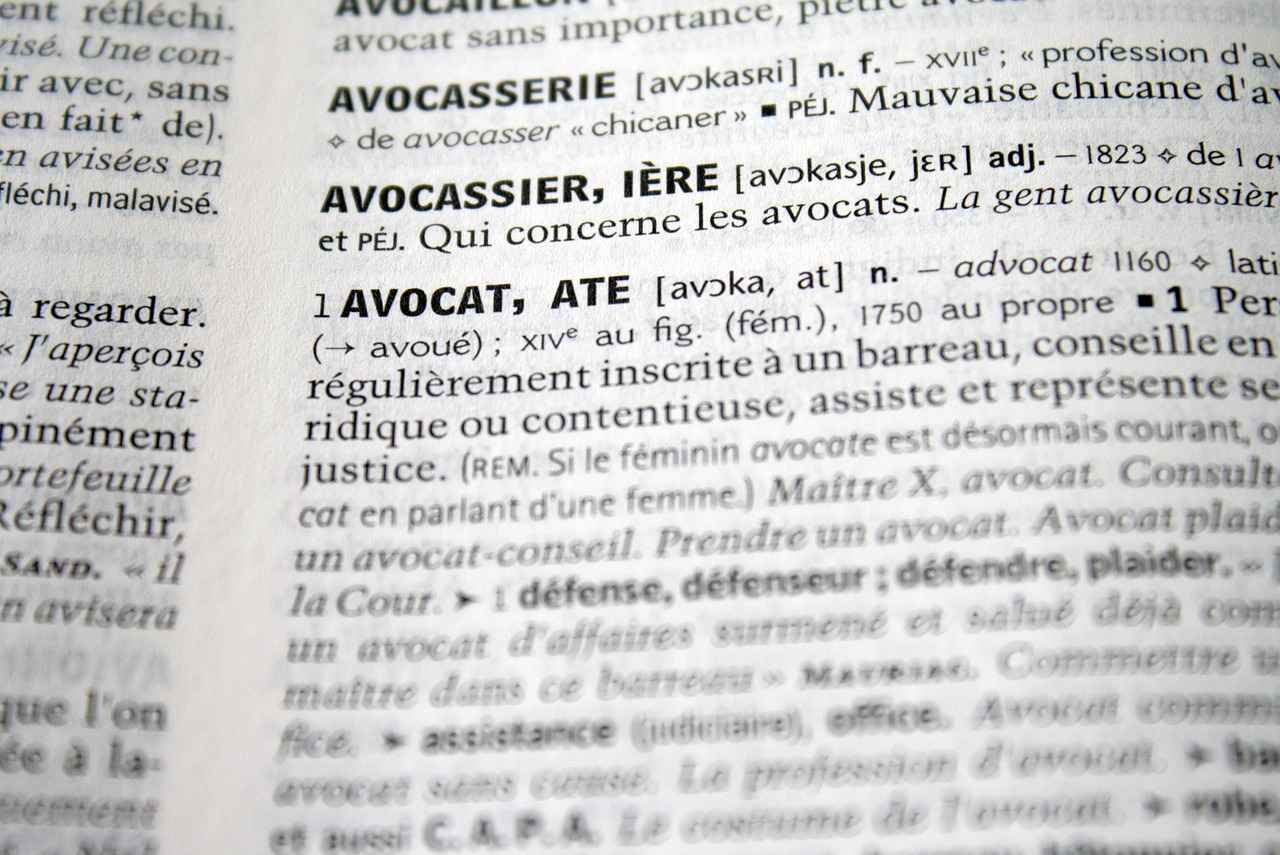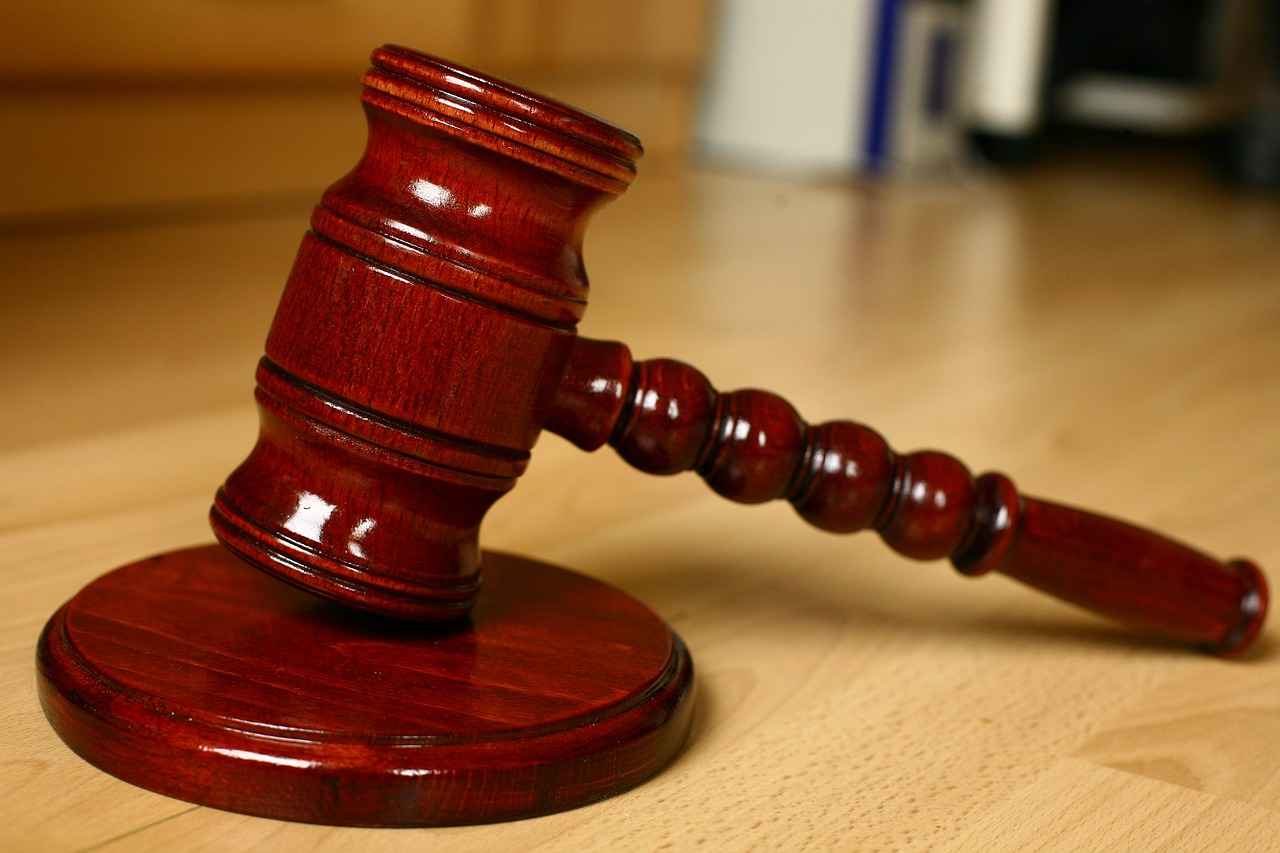This article provides a comprehensive guide for individuals seeking legal representation in Lexington, Kentucky. We’ll explore various types of legal cases and offer expert tips on finding qualified attorneys.
Personal injury law encompasses a range of cases, including car accidents, slip-and-fall incidents, and workplace injuries. If you find yourself in need of a personal injury attorney, consider the following:
- Experience: Look for attorneys with a proven track record in personal injury cases.
- Reputation: Check online reviews and testimonials to gauge client satisfaction.
- Consultation: Many attorneys offer free consultations; use this opportunity to assess their expertise.
Medical malpractice involves negligence by healthcare professionals. When searching for an attorney in this niche, consider:
- Specialization: Ensure the attorney has specific experience in medical malpractice cases.
- Case History: Ask about their success rate in similar cases.
- Legal Fees: Understand their fee structure, as cases can be expensive.
Breach of contract cases often arise in business dealings. To find a qualified attorney, keep these points in mind:
- Expertise: Seek attorneys who specialize in contract law.
- Negotiation Skills: Look for someone who can negotiate effectively on your behalf.
- Client Communication: Ensure they keep you informed throughout the process.
Property disputes can involve ownership, boundaries, and zoning issues. To select a qualified real estate attorney:
- Local Knowledge: Choose someone familiar with Lexington’s real estate laws.
- Track Record: Investigate their history of handling similar disputes successfully.
- Referrals: Ask for recommendations from friends or colleagues.
Landlord-tenant disputes often arise over lease agreements and property conditions. To ensure your rights are protected:
- Experience: Look for attorneys who focus on landlord-tenant law.
- Resources: Ensure they have access to relevant legal resources.
- Initial Consultation: Use the initial meeting to assess their understanding of your situation.
Defamation involves damaging false statements about a person. When choosing an attorney:
- Specialization: Ensure they have experience in defamation law.
- Proven Results: Ask for examples of past successful defamation cases.
- Clear Communication: They should explain the complexities of your case thoroughly.
Employment disputes can range from wrongful termination to discrimination. To find a qualified employment lawyer:
- Expertise: Look for attorneys who specialize in employment law.
- Client Testimonials: Research reviews from previous clients.
- Fee Structure: Understand their payment terms before hiring them.
Product liability cases arise when defective products cause harm. When searching for an attorney:
- Experience: Choose someone with a history of handling product liability cases.
- Negotiation Skills: They should be adept at negotiating settlements.
- Client Focus: Look for an attorney who prioritizes client needs and communication.
Wrongful death claims arise from negligence or misconduct leading to a person’s death. To find a compassionate attorney:
- Empathy: Choose someone who understands the emotional complexities involved.
- Success Rate: Investigate their history of successful wrongful death claims.
- Support Services: Ensure they provide support throughout the legal process.
Class action lawsuits allow groups to sue for common grievances. When selecting an attorney:
- Experience: Look for attorneys with a background in class action cases.
- Understanding of Class Actions: They should explain the process clearly.
- Client Communication: Choose someone who keeps clients informed throughout.
Criminal defense encompasses various offenses, from theft to homicide. To safeguard your rights:
- Specialization: Find an attorney who specializes in criminal law.
- Track Record: Research their success rate in similar cases.
- Personal Rapport: Choose someone you feel comfortable discussing sensitive issues with.
Family law includes divorce, custody, and support issues. To find an empathetic family law attorney:
- Experience: Look for someone with a strong background in family law cases.
- Client Reviews: Read testimonials from past clients.
- Supportive Approach: Choose an attorney who understands the emotional aspects of family law.
Immigration law can be intricate and challenging. An attorney specializing in immigration can provide essential guidance:
- Specialization: Ensure they focus specifically on immigration law.
- Success Rate: Investigate their history of successful immigration cases.
- Clear Communication: They should explain the immigration process thoroughly.

Understanding Personal Injury Cases
Personal injury law is a crucial area of legal practice that focuses on cases where individuals suffer harm due to the negligence or wrongful actions of others. This field covers a wide array of incidents, including car accidents, slip-and-fall incidents, workplace injuries, and medical malpractice. Understanding the nuances of personal injury cases is essential for anyone seeking legal recourse after an injury.
When seeking a personal injury attorney, it is vital to consider their experience and track record in handling similar cases. A skilled attorney can significantly influence the outcome of your case, ensuring that you receive the compensation you deserve. Here are some key factors to consider when searching for a personal injury lawyer:
- Experience in Personal Injury Law: Look for attorneys who specialize in personal injury law and have a proven history of successful case outcomes.
- Client Reviews and Testimonials: Research online reviews and client testimonials to gauge the attorney’s reputation and effectiveness.
- Initial Consultation: Many personal injury attorneys offer free consultations. Use this opportunity to assess their communication style and approach to your case.
- Fee Structure: Understand the attorney’s fee structure, including contingency fees, which means they only get paid if you win your case.
- Trial Experience: While many personal injury cases settle out of court, having an attorney with trial experience can be a significant advantage if your case goes to litigation.
In major metropolitan areas such as New York City, Los Angeles, and Chicago, the competition among personal injury lawyers is intense. Utilize online legal directories, such as Avvo and FindLaw, to find qualified attorneys in your area. Additionally, local bar associations often provide referral services that can connect you with reputable lawyers.
It’s also essential to be aware of red flags when hiring a personal injury attorney. Avoid attorneys who make unrealistic promises about the outcome of your case or those who pressure you into signing contracts quickly. Trust your instincts; if something feels off, it’s worth considering other options.
In summary, finding the right personal injury attorney can make a significant difference in your case. By focusing on experience, client feedback, and clear communication, you can increase your chances of a favorable outcome.

Medical Malpractice: What You Need to Know
Medical malpractice is a serious issue that can have devastating consequences for patients and their families. It occurs when healthcare professionals, such as doctors or nurses, fail to provide the standard of care expected in their field, resulting in harm to the patient. This can include misdiagnosis, surgical errors, medication mistakes, and inadequate treatment. Understanding the intricacies of medical malpractice is essential for anyone who may find themselves a victim of such negligence.
When navigating the complex world of medical malpractice law, it is crucial to find an attorney who specializes in this area. An experienced medical malpractice attorney will possess a deep understanding of the medical field, as well as the legal standards that govern healthcare practices. They can help you gather the necessary evidence, such as medical records and expert testimonies, to support your case.
Here are some key steps to consider when searching for a qualified medical malpractice attorney:
- Research Credentials: Look for attorneys with specific experience in medical malpractice cases. Check their education, years of practice, and any relevant certifications.
- Seek Recommendations: Ask for referrals from friends, family, or other legal professionals. Personal recommendations can provide valuable insights into an attorney’s capabilities.
- Evaluate Track Records: Investigate the attorney’s history of successful outcomes in medical malpractice cases. A strong track record can indicate their ability to navigate complex legal battles effectively.
- Consultations: Many attorneys offer free initial consultations. Use this opportunity to discuss your case and assess the attorney’s approach and communication style.
- Consider Specialization: Choose an attorney who specializes in medical malpractice rather than a general practitioner. Specialized attorneys are more likely to be familiar with the latest developments in medical law.
Additionally, be wary of any red flags during your search. For example, if an attorney guarantees a specific outcome or pressures you into signing a contract quickly, these could be signs of unprofessional behavior. A reputable attorney will provide a clear explanation of the legal process and your options without making unrealistic promises.
In major metropolitan areas like New York City, Los Angeles, and Chicago, the competition among attorneys can be fierce. Utilize online platforms such as Avvo or FindLaw to read reviews and compare attorneys’ profiles. These platforms can help you identify qualified candidates based on their experience and client feedback.
Ultimately, choosing the right medical malpractice attorney can significantly impact your chances of achieving justice and receiving the compensation you deserve. Take your time, do your research, and trust your instincts when selecting a legal representative.

Breach of Contract: Legal Implications
Breach of contract cases frequently emerge in the realm of business dealings, where agreements are made with the expectation that all parties will uphold their end of the deal. When one party fails to fulfill their contractual obligations, it can lead to significant financial and operational challenges for the aggrieved party. This is where the expertise of an attorney specializing in contract law becomes invaluable. A qualified attorney can not only help protect your interests but also enforce the agreements made, ensuring that you receive the compensation or remedy you deserve.
Understanding the nuances of contract law is essential. Contracts can be written or verbal, and breaches can occur in various forms, including outright non-performance, delayed performance, or substandard performance. For instance, if a contractor fails to complete a construction project on time or does not adhere to the specified quality standards, this can constitute a breach of contract. In such cases, legal representation is crucial to navigate the complexities of the law and to determine the most effective course of action.
When seeking an attorney for a breach of contract case, consider the following steps:
- Specialization: Look for attorneys who specialize in contract law. Their expertise will be beneficial in understanding the specific legal frameworks and precedents that apply to your case.
- Experience: An attorney with a proven track record in handling breach of contract cases will have the skills necessary to advocate for your interests effectively.
- Reputation: Research potential attorneys through online reviews, testimonials, and professional ratings. A strong reputation often indicates a lawyer’s ability to achieve positive outcomes for their clients.
- Consultations: Many attorneys offer free initial consultations. Use this opportunity to discuss your case and gauge their understanding and approach to your situation.
- Communication: Effective communication is key in any attorney-client relationship. Ensure that the attorney is responsive and willing to explain the legal process in a way that is easy to understand.
Additionally, be wary of red flags when hiring an attorney:
- Lack of Transparency: If an attorney is not forthcoming about their fees, processes, or previous case outcomes, this could be a warning sign.
- High Pressure Tactics: Avoid attorneys who pressure you to sign agreements or make hasty decisions without giving you adequate time to consider your options.
- Unclear Specialization: If an attorney claims to handle many different types of cases without a clear focus on contract law, they may not have the depth of knowledge needed for your specific case.
In summary, navigating a breach of contract case requires careful consideration and the right legal representation. With the right attorney by your side, you can protect your rights and interests, ensuring that the agreements you enter into are honored and enforced. Whether you are in a major metropolitan area like New York City or Los Angeles, or a smaller city, these guidelines will help you find a qualified attorney who can assist you in resolving your breach of contract issues effectively.

Property Disputes: Navigating Real Estate Law
Property disputes can arise from various issues, including ownership rights, boundary disagreements, and zoning regulations. These disputes can be complex and emotionally charged, often requiring the expertise of a qualified real estate attorney to navigate the legal landscape effectively. Understanding how to select the right attorney can significantly simplify the resolution process and help protect your interests.
When faced with a property dispute, the first step is to assess the nature of the issue. Ownership disputes may involve questions about title, inheritance, or the validity of a deed. Boundary disputes often arise when property lines are unclear, leading to conflicts between neighbors. Zoning issues can occur when property use does not comply with local regulations, which can affect development plans or business operations.
To find a qualified real estate attorney, consider the following steps:
- Research and Referrals: Start by asking friends, family, or colleagues for recommendations. Online reviews and legal directories can also provide insights into an attorney’s reputation.
- Specialization: Ensure the attorney specializes in real estate law. A lawyer with experience in property disputes will be familiar with the nuances of local laws and regulations.
- Credentials: Look for attorneys who are members of professional organizations, such as the American Bar Association or local bar associations, which often require ongoing education and adherence to ethical standards.
- Consultation: Many attorneys offer free initial consultations. Use this opportunity to discuss your case, gauge their expertise, and assess their communication style.
- Fee Structure: Understand the attorney’s fee structure upfront. Some may charge hourly rates, while others might work on a contingency basis. Make sure you are clear about costs to avoid unexpected expenses.
As you evaluate potential attorneys, be aware of red flags that could indicate a lack of professionalism or reliability:
- Poor Communication: If an attorney is difficult to reach or does not respond promptly to inquiries, this could be a sign of potential issues down the line.
- Unclear Fee Agreements: Be wary of attorneys who do not provide a clear breakdown of their fees or who pressure you into signing agreements without explaining them.
- Negative Reviews: While every attorney may have a few dissatisfied clients, a pattern of negative reviews can indicate systemic problems.
In addition to these factors, consider the attorney’s experience with similar cases. Ask about their success rates in resolving property disputes and their familiarity with local courts and judges. A well-connected attorney can often navigate the system more effectively, leveraging relationships to benefit your case.
In conclusion, property disputes can be challenging, but with the right legal representation, you can achieve a favorable outcome. By conducting thorough research, asking the right questions, and being aware of potential pitfalls, you can find a qualified real estate attorney who will advocate for your best interests.

Landlord-Tenant Disputes: Know Your Rights
Landlord-tenant disputes are a common issue faced by many individuals renting or leasing property. These disputes can arise from various factors, including disagreements over lease agreements, property maintenance, and tenant rights. Understanding your rights as a tenant is crucial in navigating these challenges effectively.
When a landlord fails to uphold their responsibilities, such as providing a safe and habitable living environment, tenants may find themselves in a difficult situation. Issues like plumbing problems, pest infestations, and inadequate heating can lead to significant distress. In such cases, it is essential to document all communications and maintain a record of the issues encountered.
Finding the Right Attorney
To protect your rights, seeking legal representation from a knowledgeable attorney who specializes in landlord-tenant law is vital. Here are some steps to help you find the best legal assistance:
- Research Local Attorneys: Start by searching for attorneys in your area who specialize in landlord-tenant disputes. Websites like Avvo and FindLaw can provide valuable information about local lawyers, including their specialties, reviews, and ratings.
- Check Credentials: Look for attorneys with specific experience in landlord-tenant law. Verify their credentials, including their education, years of practice, and any relevant certifications.
- Read Reviews: Client reviews and testimonials can provide insight into an attorney’s reputation and effectiveness. Pay attention to feedback regarding their communication skills, responsiveness, and success rates in similar cases.
- Schedule Consultations: Many attorneys offer free initial consultations. Use this opportunity to discuss your situation, ask questions, and gauge their understanding of landlord-tenant issues.
- Discuss Fees: Be sure to clarify the attorney’s fee structure upfront. Some may charge hourly rates, while others might work on a contingency basis. Understanding the financial aspect is crucial before proceeding.
Understanding Your Rights
As a tenant, it is essential to be aware of your rights under local and state laws. Common rights include:
- The Right to a Habitable Home: Landlords are required to ensure that rental properties meet specific health and safety standards.
- The Right to Privacy: Landlords must provide notice before entering your rental unit, except in emergencies.
- The Right to Fair Treatment: Tenants cannot be discriminated against based on race, gender, or other protected characteristics.
When disputes arise, understanding these rights can empower tenants to advocate for themselves effectively. If negotiations with the landlord fail, an attorney can help you pursue legal action to enforce your rights.
Common Disputes and Resolutions
Landlord-tenant disputes can vary widely, but some common issues include:
- Non-Payment of Rent: If a tenant is unable to pay rent, landlords may initiate eviction proceedings. Understanding the eviction process and tenant protections is crucial.
- Security Deposit Disputes: Disagreements over the return of security deposits are frequent. Tenants should know the laws governing security deposits in their state.
- Lease Violations: Landlords may claim lease violations for various reasons. Tenants should be aware of their rights to contest such claims.
In resolving these disputes, mediation can often be a helpful first step. It allows both parties to negotiate a solution without the need for litigation. However, if mediation fails, litigation may be necessary, and having an experienced attorney can make a significant difference in the outcome.
Conclusion
In landlord-tenant disputes, knowledge is power. By understanding your rights and seeking the assistance of a qualified attorney, you can navigate these challenges more effectively. Remember to document everything and approach the situation with a clear understanding of your legal standing.

Defamation Cases: Understanding Libel and Slander
Defamation cases are critical in protecting an individual’s reputation from damaging false statements. Defamation can occur in two primary forms: libel, which refers to written statements, and slander, which pertains to spoken statements. Understanding the nuances of these terms and the legal implications involved is essential for anyone considering a defamation claim.
To successfully prove a defamation case, a plaintiff must establish several key elements:
- False Statement: The statement in question must be false. Truth is an absolute defense against defamation.
- Publication: The false statement must be communicated to a third party. This could be through social media, news outlets, or even word of mouth.
- Fault: Depending on the plaintiff’s status (public figure or private individual), they may need to prove negligence or actual malice.
- Damages: The plaintiff must demonstrate that they suffered harm as a result of the false statement, such as emotional distress or financial loss.
Engaging an attorney who specializes in defamation law is crucial for navigating these complexities. A skilled attorney can help gather evidence, establish the necessary elements of the case, and represent the plaintiff in court. Here are some practical tips for finding the right legal representation:
- Research Credentials: Look for attorneys with specific experience in defamation cases. They should have a strong track record of handling similar cases successfully.
- Consult Reviews: Online platforms like Avvo and Martindale-Hubbell provide client reviews and ratings that can guide your decision.
- Initial Consultation: Many attorneys offer free consultations. Use this opportunity to gauge their expertise and approach to your case.
- Ask Questions: Inquire about their experience with defamation cases, their strategy for your specific situation, and their fee structure.
- Assess Communication: Ensure that the attorney communicates clearly and promptly. Good communication is vital for a successful attorney-client relationship.
It is also essential to be aware of potential red flags when hiring a defamation attorney:
- Lack of Specialization: Avoid attorneys who do not specialize in defamation law, as they may not be familiar with the nuances of the field.
- Unclear Fees: Be wary of attorneys who cannot provide a clear explanation of their fees and billing practices.
- Negative Reviews: Consistent negative feedback from previous clients can indicate potential issues with the attorney’s practice.
In conclusion, defamation cases are complex and require a knowledgeable attorney who can navigate the legal landscape effectively. By understanding the elements of defamation and taking the time to find a qualified attorney, individuals can protect their reputations and seek justice for any harm suffered.

Employment Disputes: Protecting Workers’ Rights
Employment disputes can encompass a variety of issues that workers may face in the workplace, including wrongful termination, discrimination, harassment, and wage disputes. Understanding your rights as an employee is crucial in navigating these complex situations. Knowing how to find a qualified employment lawyer can significantly impact the outcome of your case and ensure that your rights are protected.
When searching for an employment lawyer, consider the following steps:
- Identify Your Specific Issue: Before seeking legal representation, clearly identify the nature of your dispute. Is it related to wrongful termination, discrimination, or perhaps a violation of labor laws? Understanding your issue will help you find a lawyer who specializes in that area.
- Research Local Attorneys: Use online resources such as legal directories, bar association listings, and review platforms to find attorneys in your area. Websites like Avvo and FindLaw provide ratings and reviews that can help you gauge a lawyer’s reputation.
- Check Credentials: Look for lawyers who are licensed to practice in your state and have experience specifically in employment law. Check their educational background, years of practice, and any special certifications they may hold.
- Schedule Consultations: Many lawyers offer free initial consultations. Use this opportunity to discuss your case, ask about their experience, and gauge their understanding of your situation. This meeting can help you determine if they are a good fit for your needs.
- Ask the Right Questions: During your consultation, ask about their success rate in similar cases, their approach to handling disputes, and their fee structure. Understanding how they charge—whether it’s hourly, contingency, or flat fees—will help you make an informed decision.
- Trust Your Instincts: Legal representation is a partnership. Trust your instincts about the lawyer’s professionalism, communication style, and whether you feel comfortable discussing your issues with them.
Additionally, be aware of red flags when hiring an employment lawyer:
- Lack of Experience: If a lawyer does not have a track record in employment law, it may be wise to consider other options.
- High Pressure Sales Tactics: Beware of lawyers who pressure you to sign contracts or make quick decisions during your first meeting.
- Poor Communication: If a lawyer is difficult to reach or does not respond promptly to your inquiries, it may indicate how they will handle your case.
In major metropolitan areas like New York City, Los Angeles, and Chicago, the demand for employment lawyers is high. This means you have access to a wide range of qualified professionals. Utilize local bar association resources for referrals, and don’t hesitate to ask friends or colleagues for recommendations based on their experiences.
Furthermore, consider joining online forums or community groups related to employment issues. These platforms can provide valuable insights and recommendations from individuals who have faced similar challenges.
Ultimately, finding a qualified employment lawyer is an essential step in protecting your rights and ensuring that you receive fair treatment in the workplace. By following these guidelines, you can navigate the process with confidence and find the legal support you need to assert your rights effectively.

Product Liability: Holding Manufacturers Accountable
Product liability cases are a crucial aspect of personal injury law, focusing on the accountability of manufacturers and sellers when their products cause harm to consumers. These cases can arise from various defects, including design flaws, manufacturing errors, or inadequate warnings about potential risks. Understanding the intricacies of product liability is essential for anyone who has been harmed by a defective product.
In the United States, the legal framework surrounding product liability is primarily governed by state laws, which can vary significantly. However, the fundamental principle remains the same: consumers have the right to expect that the products they purchase are safe for use. When this expectation is violated, it is the responsibility of the injured party to seek justice and compensation.
To successfully navigate a product liability case, it is imperative to work with an experienced attorney who specializes in this area of law. A proficient lawyer can help you gather evidence, establish the defect in the product, and demonstrate how it directly caused your injuries. This process often involves:
- Investigating the Product: A thorough examination of the product in question is essential. This may include obtaining expert opinions to analyze the design and manufacturing processes.
- Documenting Injuries: Keeping detailed records of your injuries, medical treatments, and any related expenses is crucial for substantiating your claim.
- Identifying Responsible Parties: In product liability cases, multiple parties may be held accountable, including manufacturers, distributors, and retailers. Your attorney will help identify all liable parties.
When searching for a product liability attorney, consider the following tips:
- Experience and Specialization: Look for attorneys with a proven track record in product liability cases. Their experience will be invaluable in navigating the complexities of your case.
- Client Reviews and Testimonials: Research online reviews and testimonials from previous clients. This will give you insight into their success rate and client satisfaction.
- Initial Consultation: Many attorneys offer free consultations. Take advantage of this opportunity to discuss your case and gauge their expertise and approach.
- Fee Structure: Understand the attorney’s fee structure. Many personal injury lawyers work on a contingency fee basis, meaning they only get paid if you win your case.
It is also essential to be aware of red flags when hiring an attorney. Avoid lawyers who make unrealistic promises or guarantees about the outcome of your case. Transparency regarding fees and processes is critical; if an attorney is not forthcoming with information, it may be best to look elsewhere.
In metropolitan areas like New York City, Los Angeles, and Chicago, you will find numerous attorneys specializing in product liability. Utilize online platforms such as Avvo, Martindale-Hubbell, or the American Bar Association’s lawyer referral service to find qualified candidates. Additionally, local bar associations can provide referrals and resources to help you make an informed decision.
In conclusion, product liability cases are complex and require a thorough understanding of both legal and technical aspects. By partnering with a knowledgeable attorney, you can effectively hold manufacturers accountable for their products and seek the compensation you deserve for your injuries.

Wrongful Death: Seeking Justice for Loved Ones
Wrongful death claims are a sensitive area of law that arise when a person’s death is caused by the negligence or misconduct of another party. These cases can stem from a variety of incidents, including car accidents, medical malpractice, and workplace accidents. Navigating the legal complexities involved can be overwhelming, especially during such a difficult time for the bereaved family. Therefore, it is crucial to find a compassionate and skilled attorney who can guide you through the process.
When searching for a wrongful death attorney, consider the following factors to ensure you find the right legal representation:
- Experience and Expertise: Look for an attorney who specializes in wrongful death cases. Their experience in similar cases can significantly impact the outcome of your claim.
- Track Record: Research the attorney’s history of settlements and verdicts in wrongful death cases. A strong track record can indicate their ability to achieve favorable results for clients.
- Compassionate Approach: Since wrongful death cases are emotionally charged, it is essential to find an attorney who demonstrates empathy and understanding towards your situation.
- Communication Skills: Choose an attorney who communicates clearly and regularly updates you on the progress of your case. Open lines of communication are vital for a successful attorney-client relationship.
- Client Testimonials: Reading reviews and testimonials from previous clients can provide insight into the attorney’s reputation and effectiveness.
In major metropolitan areas like New York City, Los Angeles, and Chicago, there are numerous resources available to help you find qualified wrongful death attorneys. Online platforms such as Avvo, FindLaw, and Lawyers.com allow you to search for lawyers based on their specialties, read reviews, and compare credentials. Additionally, local bar associations often provide referral services that can connect you with reputable attorneys in your area.
When interviewing potential attorneys, ask about their approach to handling wrongful death cases. Inquire about their strategies for gathering evidence, negotiating settlements, and preparing for trial if necessary. It is also wise to discuss their fee structure upfront. Many wrongful death attorneys work on a contingency fee basis, meaning they only get paid if you win your case. This arrangement can alleviate some financial pressure during a challenging time.
Finally, be wary of red flags when hiring an attorney. If an attorney guarantees a specific outcome or pressures you to sign a contract quickly, consider this a warning sign. A reputable attorney should provide realistic expectations based on the specifics of your case.
In conclusion, pursuing a wrongful death claim is a complex process that requires the right legal support. By taking the time to find a qualified attorney who understands the nuances of wrongful death law, you can ensure that your loved one’s memory is honored and that you seek the justice you deserve.

Class Action Lawsuits: Understanding Collective Legal Action
Class action lawsuits represent a powerful legal tool that allows a group of individuals to collectively pursue claims against a defendant for common grievances. This type of lawsuit is particularly useful when the damages suffered by each individual may be too small to justify filing separate lawsuits. By banding together, plaintiffs can share resources, reduce legal costs, and increase their chances of achieving a favorable outcome.
In the United States, class action lawsuits are commonly used in cases involving consumer fraud, employment discrimination, and product liability. For instance, if a defective product causes harm to a large number of people, a class action can be an effective way to hold the manufacturer accountable. Similarly, if a company engages in unfair labor practices affecting a group of employees, a class action may provide a pathway to justice.
When considering a class action lawsuit, it is essential to consult with an attorney who specializes in this area of law. An experienced attorney can help you understand your rights and the legal process involved. They will evaluate the merits of your case, determine if it qualifies for class action status, and guide you through the complexities of litigation.
One of the critical aspects of class action lawsuits is the certification process. Before a case can proceed as a class action, the court must certify it, which involves demonstrating that:
- The class is sufficiently large for a class action.
- There are common legal or factual questions among the class members.
- The claims of the representative parties are typical of those of the class.
- The representative parties will adequately protect the interests of the class.
Once certified, the case can move forward, and all class members will be notified. This notification is crucial, as it informs potential plaintiffs of their rights and options. It also allows individuals to opt-out of the class action if they prefer to pursue their claims independently.
In terms of compensation, the outcome of a class action lawsuit can vary widely. Depending on the case, plaintiffs may receive monetary damages, injunctions, or other forms of relief. However, it is important to understand that individual payouts may be significantly less than what one might receive in a personal lawsuit, as the total award is divided among all class members.
When searching for a qualified attorney to handle a class action lawsuit, consider the following tips:
- Experience: Look for attorneys who have a proven track record in class action litigation. Ask about their previous cases and outcomes.
- Reputation: Research the attorney’s reputation in the legal community. Online reviews, testimonials, and peer recommendations can provide valuable insights.
- Specialization: Ensure that the attorney specializes in class action lawsuits and has a deep understanding of the relevant laws and regulations.
- Consultations: Schedule consultations with multiple attorneys to discuss your case. This will give you a sense of their approach and whether you feel comfortable working with them.
- Fee Structure: Understand the attorney’s fee structure. Many class action attorneys work on a contingency basis, meaning they only get paid if you win your case.
In conclusion, class action lawsuits serve as a vital mechanism for individuals to seek justice collectively. With the right legal representation, you can navigate this complex process and work towards achieving a fair resolution for the grievances shared by your group. If you believe you have a case that may qualify for a class action, do not hesitate to reach out to a qualified attorney who can guide you through the necessary steps.

Criminal Defense: Types of Crimes and Legal Representation
Criminal defense is a critical area of law that encompasses a wide range of offenses, from minor infractions to serious felonies. Understanding the various types of crimes and the importance of having competent legal representation can significantly impact the outcome of a case. In this section, we will explore the most common types of criminal offenses and provide guidance on how to find an experienced criminal defense attorney to protect your rights.
Crimes can generally be categorized into several types, including:
- Theft and Burglary: These offenses involve the unlawful taking of someone else’s property. Theft can be classified as petty or grand, depending on the value of the property involved.
- Assault and Battery: Assault refers to the threat of harm, while battery involves actual physical contact. These charges can range from misdemeanors to felonies, depending on the severity of the act.
- Drug Offenses: This includes possession, distribution, and manufacturing of illegal substances. The penalties can vary widely based on the type and amount of drug involved.
- Fraud and Embezzlement: These white-collar crimes involve deceit for personal gain, often in financial contexts. They can lead to severe legal consequences if proven.
- Murder and Homicide: The most serious criminal charges, these involve the unlawful killing of another person. Legal representation is crucial in navigating the complexities of such cases.
- DUI/DWI: Driving under the influence of alcohol or drugs can result in significant penalties, including fines and imprisonment. An attorney can help mitigate these consequences.
- Domestic Violence: This encompasses a range of offenses, including physical and emotional abuse within a domestic setting. Legal representation is vital for both victims and the accused.
- Cybercrime: As technology advances, so do the types of crimes. Cybercrime includes hacking, identity theft, and online harassment, requiring specialized legal knowledge.
- Sexual Offenses: These crimes can range from harassment to assault and carry severe penalties. Finding an attorney experienced in handling such sensitive cases is essential.
When searching for a criminal defense attorney, consider the following strategies:
- Research and Referrals: Start by seeking recommendations from trusted sources such as friends, family, or other legal professionals. Online reviews can also provide insights into an attorney’s reputation.
- Check Credentials: Look for attorneys with relevant experience in criminal law, particularly those who have handled cases similar to yours. Verify their education, bar association membership, and any special certifications.
- Consultation: Many attorneys offer free initial consultations. Use this opportunity to discuss your case, gauge their expertise, and determine if you feel comfortable working with them.
- Assess Communication: A good attorney should be able to explain legal concepts clearly and keep you informed about your case’s progress. Effective communication is vital for a successful attorney-client relationship.
- Beware of Red Flags: Be cautious of attorneys who promise guaranteed outcomes, pressure you to make quick decisions, or lack transparency about their fees. A reputable attorney will provide realistic expectations and be upfront about costs.
In major cities like New York, Los Angeles, and Chicago, the competition among criminal defense attorneys can be fierce. Utilize online legal directories, such as Avvo or FindLaw, to compare attorneys based on their ratings and client reviews. Additionally, consider checking local bar association websites for referrals to qualified attorneys in your area.
In summary, navigating the criminal justice system can be daunting, but finding the right attorney is crucial for safeguarding your rights and achieving the best possible outcome. By understanding the types of crimes and employing effective strategies to find a qualified criminal defense attorney, you can ensure that you are well-represented in your legal matters.

Family Law: Divorce and Child Custody Issues
Family law is a significant area of legal practice that addresses various personal and familial matters, primarily divorce, child custody, and support issues. These cases often involve emotional turmoil and complex legal questions, making it essential to find an empathetic and experienced family law attorney. The right attorney can significantly influence the outcome of your case, ensuring that your rights and interests are effectively represented.
When seeking a family law attorney, it is crucial to consider several factors:
- Experience: Look for attorneys with a proven track record in family law. Experience in handling cases similar to yours can provide invaluable insights and strategies.
- Empathy: Family law cases are often emotionally charged. An attorney who understands the emotional aspects can provide better support and guidance throughout the process.
- Communication Skills: Your attorney should be able to explain complex legal terms in a way that you can understand. They should also keep you informed about the progress of your case.
- Reputation: Research online reviews and testimonials. A lawyer with a good reputation in the community is often a sign of reliability and competence.
- Fees: Understand the fee structure upfront. Some attorneys charge hourly rates, while others may offer flat fees for specific services. Make sure you are comfortable with the financial aspect before proceeding.
In major metropolitan areas like New York City, Los Angeles, and Chicago, there are numerous resources available to help you find qualified family law attorneys:
- Bar Associations: Local bar associations often provide referral services that can connect you to qualified attorneys in your area.
- Online Legal Directories: Websites like Avvo and FindLaw allow you to search for attorneys based on their specialty, location, and client reviews.
- Word of Mouth: Personal recommendations from friends or family members can be invaluable. If someone has had a positive experience with a family law attorney, it could lead you to the right choice.
Red flags to watch out for include:
- Lack of Communication: If an attorney is difficult to reach or does not respond promptly to your inquiries, it may indicate a lack of commitment to your case.
- Pressure Tactics: Be cautious of attorneys who pressure you into making quick decisions or who promise guaranteed outcomes.
- Inadequate Experience: Avoid attorneys who do not specialize in family law or lack experience in handling cases similar to yours.
In summary, navigating family law issues such as divorce and child custody can be challenging. By taking the time to research and select the right attorney, you can ensure that your case is handled with the care and expertise it deserves. Remember, the right legal representation can make all the difference in achieving a favorable outcome.

Immigration Cases: Navigating Legal Complexities
Immigration law is a complex and often daunting field that encompasses a variety of legal issues, from visa applications and green card petitions to deportation defense and asylum claims. For individuals navigating these processes, the stakes can be incredibly high, making it essential to seek professional legal assistance. An immigration attorney can provide invaluable guidance, ensuring that you understand your rights and options throughout the legal journey.
When searching for an immigration attorney, consider the following key factors:
- Experience and Specialization: Look for attorneys who specialize in immigration law. Their experience with similar cases can significantly impact the outcome of your situation.
- Credentials: Verify their qualifications, including education, bar association membership, and any certifications in immigration law.
- Track Record: Research their success rates in handling cases like yours. Client testimonials and case studies can provide insight into their effectiveness.
- Communication Skills: An attorney should be able to explain complex legal concepts in a way that you can understand. Clear communication is crucial for a successful attorney-client relationship.
- Consultation: Many attorneys offer a free initial consultation. Use this opportunity to gauge their expertise and determine if they are a good fit for your needs.
In major metropolitan areas such as New York City, Los Angeles, and Chicago, you can find numerous immigration attorneys. However, it is essential to avoid common pitfalls when selecting legal representation:
- Promises of Guaranteed Outcomes: Be wary of any attorney who guarantees a specific result. Immigration cases can be unpredictable, and no attorney can assure success.
- High Fees without Transparency: Ensure that you understand the fee structure before hiring an attorney. Hidden fees can lead to unexpected costs.
- Lack of Personal Attention: Choose an attorney who will dedicate time to your case. Avoid firms that treat clients as mere numbers.
In addition to traditional methods of finding an attorney, consider using online platforms that specialize in legal services. Websites like Avvo, FindLaw, and LegalMatch provide directories of attorneys categorized by specialty. These platforms often include client reviews and ratings, helping you make informed decisions.
Ultimately, navigating immigration law requires careful consideration and the right legal support. By following these guidelines, you can find a qualified immigration attorney who will help you achieve your goals and navigate the complexities of the legal system.
Frequently Asked Questions
- How do I choose the right attorney for my case?
Choosing the right attorney can feel like finding a needle in a haystack! Start by identifying your specific legal needs. Look for attorneys who specialize in your area of concern, whether it’s personal injury, family law, or criminal defense. Don’t hesitate to check their reviews and ask for referrals from friends or family.
- What should I ask during an initial consultation?
Great question! Use the initial consultation to gauge if the attorney is a good fit. Ask about their experience with cases similar to yours, their approach to handling your case, and their fee structure. It’s also wise to inquire about their communication style—will they keep you updated throughout the process?
- How much does hiring a lawyer cost?
The cost of hiring a lawyer can vary widely based on the type of case and the attorney’s experience. Some lawyers charge hourly rates, while others may work on a contingency fee basis, meaning they only get paid if you win your case. Always clarify fees upfront to avoid any surprises later!
- What if I can’t afford a lawyer?
Don’t worry; there are options! Many attorneys offer free consultations and may work on a sliding scale based on your income. Additionally, legal aid organizations can provide assistance for those who qualify. Remember, everyone deserves access to legal support!














